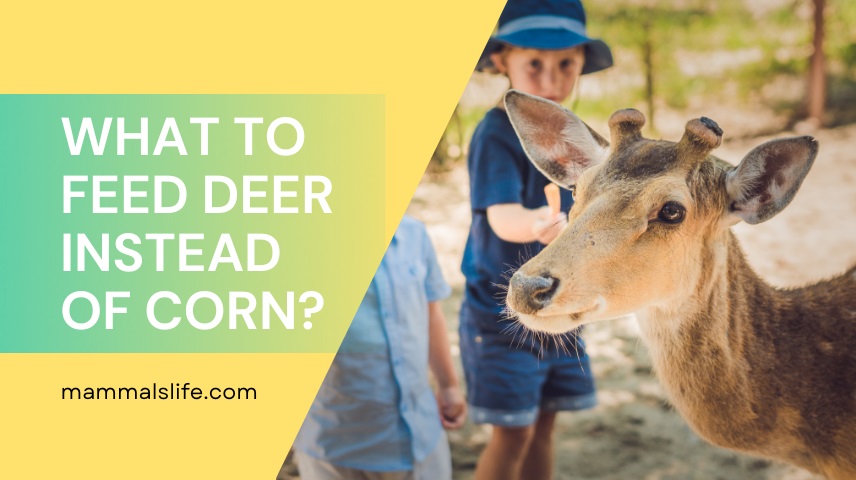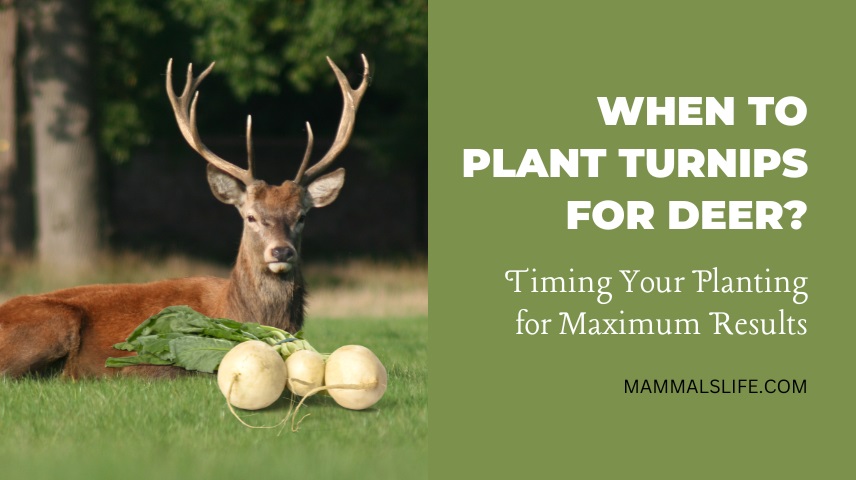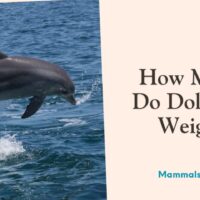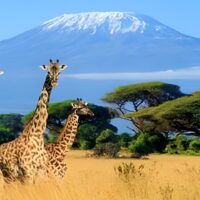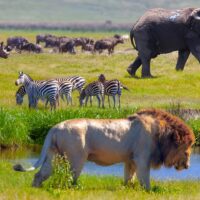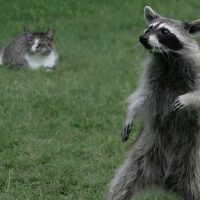Last Updated on February 22, 2025 by Mammals Life
Feed deer natural forage like acorns, soybeans, and oats instead of corn. These options promote better health and sustainability.
Feeding deer responsibly involves choosing alternatives that enhance their diet and well-being. Corn, though popular, lacks essential nutrients and can harm deer health. Opting for natural forage like acorns, soybeans, and oats provides a more balanced diet. These foods mimic what deer naturally consume, promoting better digestion and overall health.
Sustainable feeding practices not only benefit deer but also support local ecosystems. By offering nutrient-rich and environment-friendly options, you ensure deer populations thrive without causing ecological imbalances. This approach fosters a healthier, more sustainable way to enjoy and support wildlife.
Introduction To Sustainable Deer Feeding
Feeding deer sustainably requires understanding their nutritional needs. It involves choosing food that supports their health and the environment. Corn is a popular feed choice, but it poses risks.
The Importance Of Proper Nutrition
Deer need a balanced diet to thrive. Their diet should include a mix of proteins, carbohydrates, and minerals. Proper nutrition helps deer grow strong and stay healthy.
Feeding deer the right foods can boost their immune system. It can also improve their reproductive health and increase their chances of survival during harsh seasons.
| Nutrient | Source | Benefit |
|---|---|---|
| Protein | Legumes | Muscle growth |
| Carbohydrates | Fruits | Energy |
| Minerals | Salt licks | Bone health |
Risks Of Feeding Corn
Feeding deer corn can cause health issues. Corn is high in carbohydrates but low in essential nutrients. This imbalance can lead to acidosis, a dangerous condition.
Deer may struggle to digest large amounts of corn. Their natural diet consists of fibrous plants, not grains. Over time, feeding corn can weaken their digestive system.
In winter, corn can become especially harmful. Deer need high-fiber foods during cold months. Corn lacks the fiber needed to keep them warm and healthy.
Consider alternative feeds for deer. Options include:
- Oats
- Barley
- Alfalfa
- Acorns
- Native browse plants
These alternatives are better for deer health and the environment. They provide necessary nutrients and support sustainable feeding practices.
Read More – Why Do Deer Snort? The Science And Instincts Behind Deer Snorting Behavior
Natural Food Sources
Feeding deer sustainably involves providing them with natural food sources. This approach ensures their health and well-being. Corn, while popular, is not always the best option. Let’s explore better alternatives.
Browse And Forbs
Browse refers to the leaves, twigs, and shoots of woody plants. Deer loves to eat browse because it’s nutritious. Trees and shrubs like oak, maple, and dogwood are favorites.
Forbs are non-woody plants that deer enjoy. These include wildflowers and other herbaceous plants. Some common forbs are clover, asters, and sunflowers. They provide essential vitamins and minerals.
Creating a habitat rich in browse and forbs supports deer health. Plant a mix of these to ensure a balanced diet.
Mast Crops
Mast crops are the fruits and nuts of trees and shrubs. They are a crucial food source for deer. There are two types of mast crops:
- Hard mast: This includes nuts like acorns, chestnuts, and hickory nuts. Hard mast provides high energy and is available in fall and winter.
- Soft mast: This includes fruits like apples, berries, and persimmons. Soft mast is high in sugars and available in spring and summer.
Planting a variety of mast-producing trees and shrubs ensures food availability year-round. This practice supports a sustainable deer population.
| Natural Food Source | Examples | Benefits |
|---|---|---|
| Browse | Oak, Maple, Dogwood | High in fiber and nutrients |
| Forbs | Clover, Asters, Sunflowers | Rich in vitamins and minerals |
| Hard Mast | Acorns, Chestnuts, Hickory Nuts | High energy, available in fall and winter |
| Soft Mast | Apples, Berries, Persimmons | High in sugars, available in spring and summer |
Read More – When Do Deer Have Babies? A Guide to Deer Reproduction And Birth
Supplemental Feeding Options
Feeding deer can be a rewarding experience. But, not all foods are good for them. Corn, though common, is not the best choice. Instead, consider more sustainable options. These choices support their health and the environment.
Protein-rich Alternatives
Deer thrive on foods rich in protein. Protein-rich foods help them grow and stay strong. Some great options include:
- Soybeans – Packed with protein and easy to find.
- Alfalfa – High in nutrients and good for deer.
- Clover – A favorite among deer and beneficial for the soil.
These choices provide the necessary nutrients. They also support the deer’s natural diet.
Mineral Supplements
Deer need minerals to stay healthy. Minerals like calcium and phosphorus are vital. These minerals help in bone growth and overall health. Consider these mineral supplements:
| Mineral | Benefits |
|---|---|
| Calcium | Supports strong bones and teeth. |
| Phosphorus | Important for energy and cell function. |
| Salt | Essential for hydration and digestion. |
Use these supplements to ensure deer get their needed minerals. You can find these minerals in commercial deer blocks or make your mix.
Creating A Deer-friendly Habitat
Creating a deer-friendly habitat means providing what deer need to thrive. This includes nutritious food, clean water, and safe shelter. By focusing on these needs, you help deer stay healthy and happy.
Planting Nutritious Vegetation
Planting the right vegetation can make a big difference. Deer love plants like clover, alfalfa, and chicory. These plants are high in nutrients and easy for deer to digest. You can also plant fruit trees like apples or pears. The fruits provide a sweet treat and extra nutrients.
Here is a table of some plants that deer love:
| Plant | Benefit |
|---|---|
| Clover | High in protein |
| Alfalfa | Rich in vitamins |
| Chicory | Good for digestion |
| Apple Trees | Provides sweet fruit |
| Pear Trees | Rich in nutrients |
Water Sources
Water is essential for deer. Deer need fresh water to drink every day. Creating a small pond or water trough can help. Make sure the water is clean and free from chemicals.
Here are some tips for providing water:
- Build a small pond in your yard.
- Use a water trough for easy access.
- Keep the water clean and fresh.
- Check water levels often.
Providing both food and water helps deer stay healthy. By creating a deer-friendly habitat, you can enjoy watching these beautiful animals thrive.
Read More – How Far Away Can Deer Smell Corn? Tips for Using Corn As an Effective Deer Attractant
Seasonal Feeding Strategies
Feeding deer sustainably means adjusting your strategies throughout the year. Deer have different dietary needs in different seasons. By understanding these needs, you can help maintain a healthy deer population. This section will cover winter feeding tips and spring and summer considerations.
Winter Feeding Tips
Winter can be harsh for deer. Natural food sources may be scarce. Here are some tips for feeding deer in winter:
- High-energy foods: Offer foods rich in carbohydrates and fats.
- Hay: Alfalfa hay is a good option.
- Vegetables: Carrots and leafy greens work well.
- Grains: Oats and barley are better than corn.
Consider these tips to help deer survive the cold months. Always ensure food is easily accessible. Place it in areas where deer usually roam.
Spring And Summer Considerations
In spring and summer, deer need different nutrients. Their diet should support growth and reproduction. Here are some spring and summer feeding tips:
- Fresh greens: Offer a mix of clover, alfalfa, and other leafy plants.
- Fruits: Apples, pears, and berries are excellent choices.
- Minerals: Provide mineral licks to support healthy antler growth.
- Water: Ensure there is always fresh water available.
Deer have plenty of natural food sources in spring and summer. Supplementing their diet with the right foods can help them thrive. Use these tips to support a healthy deer population year-round.
Avoiding Common Mistakes
Feeding deer can be rewarding and beneficial. However, it’s essential to avoid common mistakes. Many people unknowingly harm deer by feeding them improperly. This section will guide you on avoiding these errors for healthier deer.
Overfeeding Issues
Overfeeding deer can lead to various problems. Excess food can cause digestive issues. Deer can become dependent on human-provided food. This reduces their natural foraging skills. Overfeeding can attract predators and lead to disease spread. To prevent these issues, feed deer in moderation.
Ensuring Balanced Diet
A balanced diet is crucial for deer’s health. Corn is not enough for their nutritional needs. Instead, provide a variety of food sources. Here are some alternatives:
- Oats
- Acorns
- Soybeans
- Alfalfa
These foods offer essential nutrients. Deer needs a mix of carbohydrates, proteins, and fats. Ensure they have access to natural forage like grasses and shrubs. This helps maintain a balanced diet and supports their overall health.
Feeding deer properly supports their well-being. Avoid common mistakes for sustainable feeding practices.
Frequently Asked Questions
What To Feed Deer Instead Of Corn?
Feed deer apples, acorns, carrots, and leafy greens. Opt for natural forage like nuts, fruits, and vegetables. Avoid corn.
What Is The Healthiest Food For Deer?
The healthiest food for deer includes natural forage like acorns, nuts, fruits, and leafy greens. Deer thrive on a diet rich in native vegetation.
What Is The Best Thing To Feed Deer In My Yard?
The best food for deer in your yard includes native plants, acorns, apples, and specially formulated deer pellets. Avoid feeding them corn.
What Is The Best Food To Put In A Deer Feeder?
The best food for a deer feeder includes corn, soybeans, and oats. These options provide essential nutrients and attract deer effectively.
What Are The Best Foods For Deer?
Deer thrive on acorns, apples, and leafy greens. These foods provide essential nutrients for their health.
Is Feeding Corn To Deer Harmful?
Yes, feeding corn can cause digestive issues. Corn lacks essential nutrients and can disrupt their natural diet.
Conclusion
Choosing the right food for deer is essential for their health and the environment. Opt for natural, nutrient-rich alternatives like acorns, fruits, and leafy greens. Sustainable feeding practices ensure a balanced ecosystem and healthier deer populations. Make informed choices to support wildlife and promote ecological harmony.

